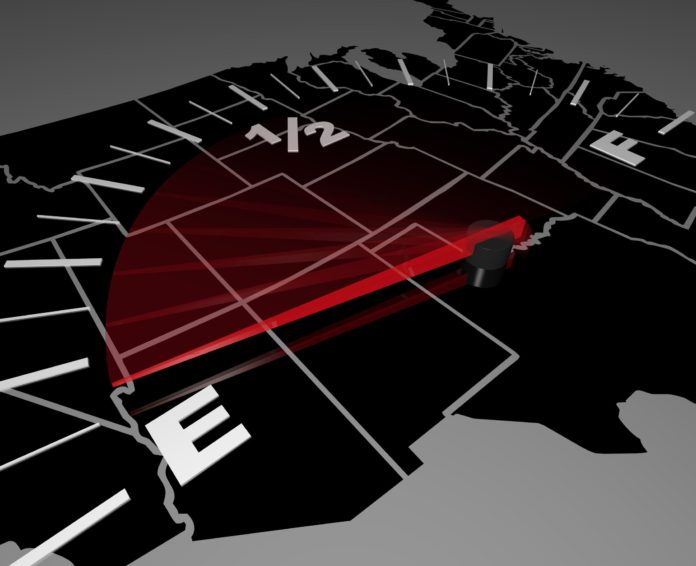President Trump on Wednesday of this week ordered the review of fuel-efficiency standards that were implemented by the Obama administration. He plans to roll back on the policies former President Obama made on fuel during his tenure. The policies, which were stricter on automobile manufacturers, were more in line with environmental conservation. The order for the review was a victory this year for automakers despite criticism from Democrats and environmental conservation groups across the country.
The revision of these standards will see a less strict approach towards fuel standards. In his address, President Trump told union workers that he would “ensure that any regulations we have protect and defend your jobs, your factories.” Additionally, he promised his government would foster growth in the US automobile sector.
As the union workers cheered him on, President Trump said, “The assault on the American auto industry is over.” Trump made these statements as he stood in front of a banner reading “Buy American – Hire American.” As Trump continued to address the audience, he made it very clear that the White House was completely in support of the auto industry. He said that his office was currently “setting up a task force in every federal agency to identify and remove any regulation that undermines American auto production.”
The banner the President stood behind as well as his emphasis in the development of the automobile industry show his efforts to fully claim the support of industrial states such as Michigan whose votes secured him his Presidential bid. Politically, it could be seen as a stepping stone to strengthen his influence in these states further. President Trump spoke to the union workers and other members of the public at the site of the former Willow Run bomber factory in Ypsilanti, Michigan. The plane factory was popular across the United States for building operational bombers at incredible speeds. During World War II, one B-24 bomber was produced every 59 minutes. Currently, the site is undergoing redevelopment into an autonomous vehicle testing ground.
After the address, Trump sat down with industry leaders where he emphasized the need for increased employment for the American people. He informed the leaders that since his administration was going to review fuel economy standards, he would also expect them to create more employment in their automobile industries. Increased jobs for Americans in the motor industry was one of his dominant policies during his election campaign. He told the leaders, “We’re going to do some wonderful work with you, but you’re going to have to help us with jobs.”
The event, held by Trump, had an estimated 1,000 attendees. These included executives from the automotive industry, United Auto Workers union President Dennis Williams who had a coveted seat next to Trump and workers from all of Detroit’s “Big Three” automakers. These companies include General Motors, Ford Motors Co, and Fiat Chrysler Automobiles. The automakers presented some of the prized vehicles they had built in the country for President Trump to see.
Executives from the automobile industry have also expressed significant optimism that the President and his administration will pursue policies that would lower taxes as well as regulatory policies for automotive manufacturers from the United States.
A review of the fuel efficiency standards set up by the Obama administration was one of the main issues on the agenda of the automotive executives. The rules, which were set days before Obama left the Oval Office, have been cited in the past as very expensive. Automakers have expressed through their lobbying groups that the expense of these policies would mean current staff numbers would have to be reduced so as to maintain the cost of production.
Environmental Protection Agency Administrator Scott Pruitt shares the same sentiments as automakers on the issue of fuel standards. “These standards are costly for automakers and the American people,” he said. In line with the EPA, one participant of Trump’s event on Wednesday enquired on the environmental effects revising the current fuel standards would have on America. In his response, Trump agreed that there were environmental concerns to be addressed. However, he pointed out his main point was growing the auto industry, and as such he did not want “extra thimbleful of fuel” to interrupt the development process of this industry.
President Trump also held a meeting with the industry’s top executives as well as foreign automobile manufacturers. According to one person who attended the meeting, Trump highlighted the need for the government to give the automakers space so that they could build vehicles.
Despite the revision of the standards being a victory for automakers, manufacturers are concerned that they will be viewed as uncaring towards environmental concerns. Ford, for example, took the chance on Wednesday to highlight its previous commitments in conserving the environment. On a post on Twitter, the company also reminded the public that it had made engagements in the development of electric vehicles.
The announcement made by Trump on Wednesday is just the beginning of changes in the automobile industry. It could take up to a year for the whole review process to occur. However, the announcement was still the starting point of how government policy will affect technology investment decisions in the automobile manufacturing industry.
As union workers and automakers celebrate, other people have different sentiments. Democratic US Senator Edward Markey said Trump’s move could leave consumers at a disadvantage. He explained that the review of the standards could mean Americans would pay more for fuel. “Filling up their cars and trucks is the energy bill Americans pay most often, but President Trump’s roll-back of fuel economy emissions standards means families will end up paying more at the pump,” he said.
Notably, a White House official confirmed that the President did not want to revoke previous rules on vehicle efficiency. Citing California, the official explained that Trump did not intend to take back the state’s authority to have even stricter rules on vehicles than the federal ones. However, the official did not exclude the possibility of California’s power being taken away in the future. Additionally, Pruitt would not fully commit that he would allow California to continue its implementation of clean vehicle rules.
California’s attorney general filed legal papers against President Trump’s move to review the fuel standards. In his writings, he sought to defend the Obama administration’s move to have the fuel standards implemented in January. Despite remarks concerning how much the standards would cost automakers, the Obama administration noted that the fuel standards would save motorists up to $1.7 trillion over the life of their vehicles.




